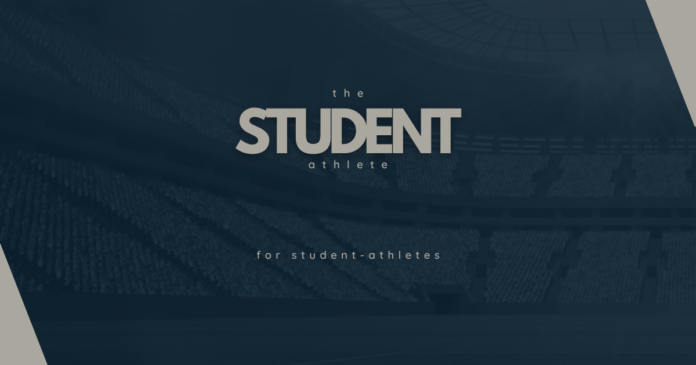Introduction
The FIFA Football Agent Exam is a difficult test designed to ensure that only prepared and knowledgeable candidates earn their licence. Unfortunately, many aspiring agents fall short, not because they lack the knowledge or desire, but because they make avoidable mistakes during the exam. This is part of the reason why the pass rate for the FIFA Agent Exam is typically very low. In this blog, we’ll explore the most common mistakes made in the FIFA Football Agent Exam and how you can avoid them.
1. Not Reading the Question Properly
One of the most frequent and costly mistakes candidates make during the FIFA Football Agent Exam is not reading the questions carefully. The exam questions are often nuanced and designed with subtle key words or phrases that significantly impact the correct answer. For example, some questions might ask you to “select one or more” options, yet many candidates overlook the possibility that more than one answer could be correct. This oversight can be particularly damaging because if you select only one correct answer but miss the others, you won’t receive any credit for the question. Even if you know the material well, failing to catch these small but crucial details can lead to incorrect answers, costing you valuable points.
Another common pitfall is misinterpreting specific terminology or instructions, which can lead to choosing an incorrect answer or overlooking the need to reference certain sections of the study material. The exam is structured to assess not only your knowledge but also your attention to detail, so even a minor misunderstanding of the question can have significant consequences.
Tip: Always take a few extra seconds to carefully read the entire question and any accompanying instructions before answering. Pay close attention to keywords and specific terminology, as these can guide you toward the correct answer or, at the very least, point you in the right direction within the study materials. When a question allows for “one or more” correct answers, carefully evaluate all options to determine whether multiple choices might be correct. However, be mindful that “select one or more” does not always mean there is more than one correct answer, so don’t let this phrase mislead you. Taking the time to fully understand each question will greatly improve your chances of selecting the correct answers and maximising your score.
2. Poor Time Management
The FIFA Football Agent Exam consists of 20 multiple-choice questions that must be completed within an hour, giving you just three minutes per question. This tight time constraint is one of the most significant challenges of the exam, and poor time management can quickly lead to incomplete answers or rushed decisions. Many candidates fall into the trap of spending too much time on particularly difficult or complex questions, meticulously analysing every detail in hopes of finding the right answer. While this approach might help with a challenging question, it can leave you with insufficient time to address the remaining questions, many of which might be easier and quicker to answer. Conversely, some candidates may rush through the exam too quickly, skimming through questions and missing key details in those that appear easier but may contain subtle nuances that are crucial to identifying the correct answer. Both of these time management issues can significantly impact your overall score.
Tip: Effective time management is crucial to success, and the best way to achieve this is through practice under conditions that closely mimic the actual exam. Begin by taking mock exams with strict time limits to get a realistic sense of the pace you need to maintain. This practice will help you build a rhythm and improve your ability to judge how much time to spend on each question. During the actual exam, remember that you can move back and forth between questions. If you encounter a question that is especially challenging, time-consuming, or involves lengthy scenarios, consider flagging it and moving on to other questions that are quicker and more straightforward to answer. This strategy allows you to secure as many points as possible from the easier questions before returning to tackle the more difficult ones. By doing so, you reduce the risk of running out of time and ensure that you don’t miss out on potential points by getting bogged down early on. Balancing your time effectively is essential for maximising your score and managing the pressure of the exam’s time constraints.
3. Over-Reliance on the Open-Book Nature of the Exam
The FIFA Football Agent Exam is open-book, allowing candidates to refer to the nearly 700-page study material during the test. While this may seem like a significant advantage, it often lulls candidates into a false sense of security. Many assume that because the exam is open-book, they can easily locate answers within the text during the exam. However, with only three minutes allotted per question, this strategy can quickly backfire. The sheer volume of information contained in the study materials means that unless you are extremely well-prepared and can quickly pinpoint the relevant sections, you will likely run out of time. Searching through hundreds of pages for each answer is simply not feasible within the tight time constraints, and relying on the open-book format as a crutch can lead to poor performance.
The complexity of the exam questions often requires not just finding a specific piece of information, but also understanding how different regulations and guidelines interconnect. If you’re spending too much time flipping through the study material, you may not have enough time to process and apply the information correctly, leading to rushed or incomplete answers. Additionally, some questions may test your ability to apply knowledge rather than simply recall facts, making it even more important that you have a strong grasp of the material before the exam begins.
Tip: While the exam is open-book, do not rely on this feature as your primary strategy for success. Thorough preparation is essential. Well before the exam, familiarise yourself with the study materials so that you have a solid understanding of where key information is located. This familiarity will allow you to quickly and efficiently reference crucial sections if needed. Develop a system for navigating the materials, such as using bookmarks, sticky notes, or creating a detailed index. Practice using this system during mock exams to ensure you can find the information you need quickly under timed conditions. By mastering the layout and content of the study material in advance, you can save valuable time during the exam and improve your ability to answer questions accurately and confidently.
4. Inadequate Preparation
Perhaps the most common mistake of all is simply not preparing enough. The FIFA Football Agent Exam is not something you can wing. The questions are designed to test your deep understanding of the material, as well as your ability to apply it in real-world scenarios. Without adequate preparation, you may find yourself overwhelmed by the breadth and depth of the questions.
Tip: At a minimum, read through the study materials at least once before the exam. Take advantage of the mock exam provided by FIFA, as well as those offered by organisations like the Sports Agents Academy. These mock exams will give you a sense of the style of questions you’ll encounter and help reduce surprises on exam day. Reviewing past exam questions can also help identify areas where you may need to focus your study efforts.
5. Failing to Understand the Distinctions Between Closely Related Concepts
Another common mistake that trips up candidates in the FIFA Football Agent Exam is not fully understanding the distinctions between closely related concepts. The exam often tests your ability to differentiate between national and international regulations, or the specific roles of various FIFA committees, such as the FIFA Disciplinary Committee and the FIFA Ethics Committee. These distinctions are crucial, as confusing them can lead to incorrect answers even when you might generally understand the broader topic.
For instance, national regulations may apply differently than international regulations in certain scenarios and candidates forget that this exam is focused on FIFA regulations alone, and the responsibilities of the FIFA Disciplinary Committee, which deals primarily with violations of FIFA statutes and disciplinary matters, are different from those of the FIFA Ethics Committee, which focuses on ethical breaches within the football community. Mistaking one for the other or misunderstanding their scope can lead to errors that might cost you valuable points.
Tip: To avoid this mistake, make sure you have a clear understanding of the differences between these related concepts. During your preparation, take the time to study how national and international regulations interact and where their boundaries lie. Similarly, review the specific functions and responsibilities of various FIFA committees. Creating comparison charts as we have done in previous blogs can help reinforce these distinctions in your mind. If you encounter a question on the exam that involves these topics, take an extra moment to consider the specific context and ensure that you’re applying the correct regulation or committee role to your answer. Understanding these subtle but important differences will improve your accuracy and confidence during the exam.
Conclusion
Passing the FIFA Football Agent Exam is no small feat, but by avoiding these common mistakes, you can increase your chances of success. Pay close attention to the details in each question, manage your time effectively, don’t rely too heavily on the open-book format, and ensure you prepare thoroughly. With the right approach, you can pass the exam and become a licensed football agent.
We’d also recommend checking out our How to Pass the FIFA Football Agent Exam Course to help you to be successful in your attempt as we have a remarkable 88% pass rate.









